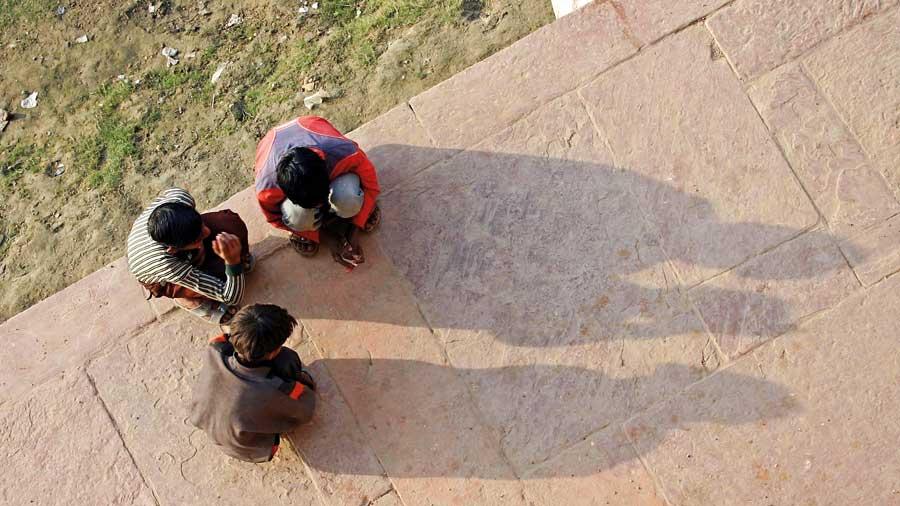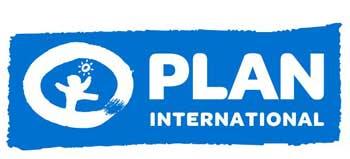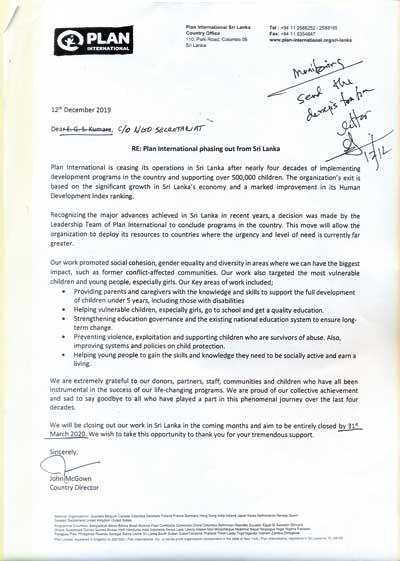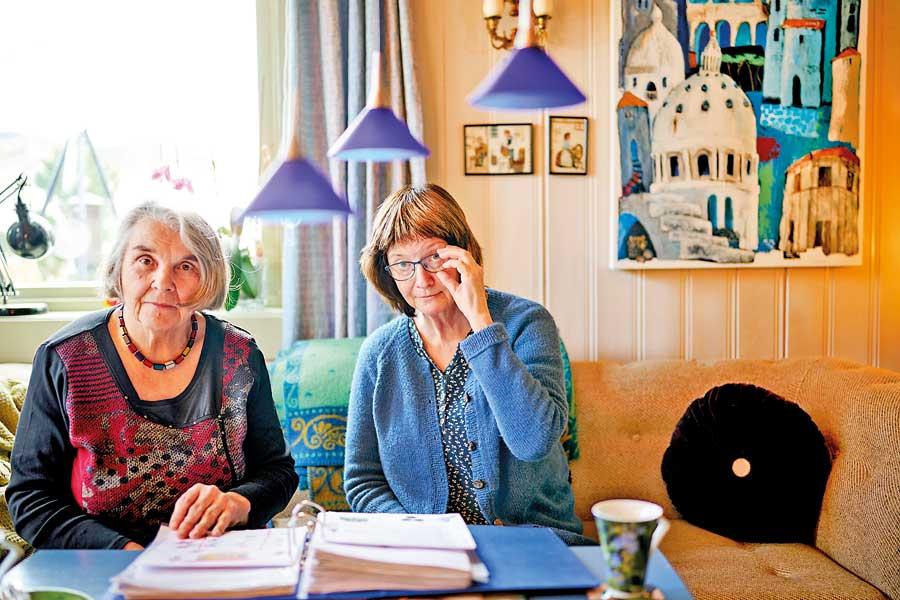16 Mar 2022 - {{hitsCtrl.values.hits}}

"The decision to exit was reached based on ‘the significant growth in Sri Lanka’s economy and a marked improvement in its Human Development’ in 2019, the same year when the brutal Easter Sunday attacks left many children vulnerable"
Since its decision to close offices in Sri Lanka, the international development organization Plan International came under harsh criticism. In a series of articles published in 2021 by the Guardian UK, and Norwegian global development website Bistandsaktuelt, Plan International was accused of abandoning some 20,000 vulnerable children in Sri Lanka while misleading donors about the welfare of these children.
International came under harsh criticism. In a series of articles published in 2021 by the Guardian UK, and Norwegian global development website Bistandsaktuelt, Plan International was accused of abandoning some 20,000 vulnerable children in Sri Lanka while misleading donors about the welfare of these children.
Founded in 1937, Plan International is a development and humanitarian organization that prides itself on advancing children’s rights and equality for girls. In Sri Lanka, the Non-Governmental Organisation (NGO) has been operational for 38 years, specializing in projects on strengthening education, helping vulnerable children and caregivers as well as preventing violence and exploitation of children.
However, on December 12, 2019, Country Director of Plan International Sri Lanka John McGown in a letter to Sri Lanka’s Secretariat for Non-Governmental Organizations (NGO Secretariat) informed of its decision to cease operations.
"In almost all of the projects implemented by the NGO, administrative costs have been higher than the costs of the actual project. PLAN was spending LKR 2 for LKR 1 worth of activities"
 “Plan International is ceasing its operations in Sri Lanka after nearly four decades of implementing development programs in the country and supporting over 500,000 children,” the letter read.
“Plan International is ceasing its operations in Sri Lanka after nearly four decades of implementing development programs in the country and supporting over 500,000 children,” the letter read.
McGown said the decision to exit was reached based on ‘the significant growth in Sri Lanka’s economy and a marked improvement in its Human Development Index ranking.’ It further said that the move allows the international agency to deploy its resources to countries where the urgency and level of need is far greater.
“We will be closing out our work in Sri Lanka in the coming months and aim to be entirely closed by 31st March 2020,” the letter said.
Plan International’s decision to leave Sri Lanka raised eyebrows. Several stakeholders found the decision abrupt and ill-prepared. Although the move was based on Sri Lanka’s advances in human development, it is important to note that the decision came at the end of the same year when the brutal Easter attacks took the lives of dozens of children and left many more vulnerable.
"Security risks were cited as a major reason for the closure of Plan Sri Lanka. But an internal review did not find sufficient evidence to substantiate this perception"
The United Nations Human Development Index (HDI) is a summary measure of average achievement in key dimensions of human development, including areas such as life expectancy, education and income. According to the statistics at the time, Plan’s decision was taken to leave Sri Lanka, the HDI value for the country was at 0.782, which placed the country in the high human development category. However, a former employee of Plan International Sri Lanka speaking to Daily Mirror on condition of anonymity said that the real reason for Plan’s departure was rising costs of operation and internal conflicts.
High operational costs and little benefit to children
An internal review covering the period July 1, 2016, to December 31, 2018 found that although Plan International Sri Lanka has had a positive impact on the communities it served, it needed to adopt a more cost-efficient business model for project implementation. In almost all of the projects implemented by the NGO, administrative costs have been higher than the costs of the actual project or activity, meaning that only a little of the funds has trickled down to the beneficiaries of the projects, i.e the children Plan International committed to helping, with funds obtained from international donors.
Sri Lanka has had a positive impact on the communities it served, it needed to adopt a more cost-efficient business model for project implementation. In almost all of the projects implemented by the NGO, administrative costs have been higher than the costs of the actual project or activity, meaning that only a little of the funds has trickled down to the beneficiaries of the projects, i.e the children Plan International committed to helping, with funds obtained from international donors.
“In the Uva Province, administration costs of projects varied from 50% to 72% of the total project expenditure in different projects. When all projects are taken together, the administration costs are 67% against the activity cost of 33%. This would translate to PISL spending LKR 2 for LKR 1 worth of activities.”
“In the North Central Province, administration costs varied from 48% to 63% of the project expenditure. Overall, the administration cost is 56% against 44% for activities. In the two National projects, administration costs were 83% and 94% of the total project costs. In the Sri Lankan scenario, these administrative expenditures are excessive. In some projects, outputs are very limited, yet the administrative costs are exceedingly high,” the report seen by the Daily Mirror said.
"Even though they admit to mistakes in Sri Lanka, all they are doing is commissioning expensive studies to learn lessons. They are not doing anything to hold those involved in these failures accountable. It’s a culture of impunity"
Left high and dry
 In September 2019, just a few months before its sudden decision to exit, Plan Sri Lanka’s Country Director Nadia Noor signed a Memorandum of Understanding (MoU) with then Uva Governor Maithri Guneratne to implement an education project in the Uva Province.
In September 2019, just a few months before its sudden decision to exit, Plan Sri Lanka’s Country Director Nadia Noor signed a Memorandum of Understanding (MoU) with then Uva Governor Maithri Guneratne to implement an education project in the Uva Province.
Speaking to the Daily Mirror the former Governor said the people of the Uva Province were left high and dry owing to Plan International’s sudden departure.
“When I was covering the Uva Province I found that a lot of NGOs were having a lot of problems with State bodies,” Guneratne said. As a result, he assured Plan International’s officials that any difficulties would be solved and ironed out with his support.
“During that year and for 2020, they came up with various projects to help the poorest of the poor, especially with water, school education and things like that,” Guneratne recalled.
Due to Plan International’s involvement, State officials had decided to not supplement any other aid to the areas where Plan was already active.
“We decided if Plan International was going into an area, we are not going to supplement it with other organizations or State funding. So what happened was that we allowed Plan International to go to certain areas, and we didn’t give any help to those areas, because they are already being helped by Plan.”
“Without even informing, they packed up and went off,” Guneratne said.
“They left the people high and dry in the Province. These are foreign organizations. They collect money from donors saying that they are going to help the poorest of the poor. And especially when they come to countries like this, they deceive the people whom they’re helping. That is not a good situation for NGOs. Because in Sri Lanka NGOs are looked at with great suspicion. When a reputed NGO like Plan International comes and gets involved with spurious activity like this, it reflects bad on all other NGOs,” Guneratne said.
Guneratne was critical of how donors of Plan International have been misled.
“They (donors) think that this money is going to the right people. But what happens is that the people are cheated,” he charged.
“I of course feel that they should rectify this situation. It’s better late than never. They should come in, go back to those areas and help them. They did some good work, I don’t deny the fact,” he added.
"It was the time of the presidential election and we got complaints from various parties, ex-employees, some beneficiaries and various other people, saying that this money is going to be used for various election purposes"
Issues with farewell project
The Daily Mirror wrote to Plan International seeking comment on its sudden exit from Sri Lanka. In response, the organization said that it is partnering with the NGO Secretariat to deliver handwashing facilities in 354 schools, helping to prevent the spread of COVID-19, focusing on schools in the Anuradhapura, Moneragala, Ampara, Mullaithivu and the Hambantota districts.
“We are pleased to confirm that following our departure from Sri Lanka, as a farewell gesture to the children and communities we worked with, we will be supporting schools in our former sponsorship areas with vital facilities that will help children safely carry on with their studies,” Plan International Executive Director for Asia Pacific Region Bhagyashri Dengle said.
In an interview with the Daily Mirror, the NGO Secretariat of Sri Lanka Raja Gooneratne said this project is yet to be implemented.
“The only operation to be done by Plan International was this school project, as a phasing-out project. But then, there were problems. It was the time of the presidential election (2019) and we got complaints from various parties, ex-employees, some beneficiaries and various other people, saying that this money is going to be used for various election purposes,” Gooneratne said.
According to Gooneratne, Plan International Sri Lanka’s Country Director at the time was keen to implement the project promptly. However, the NGO Secretariat had identified several issues with a list of beneficiaries drafted by Plan.
“They had selected some schools where they had never sponsored children. Whereas they had left out schools where they had sponsored children,” he said.
Gooneratne had then explained that Plan must comply with the NGO Secretariat’s requirements to include all the sponsored students, as per the initial draft, for him to sign off on the project.
After several rounds of discussions, the Daily Mirror learns that the NGO Secretariat, together with Plan, has now finalized the list of beneficiaries.
The project is to be implemented through a Power of Attorney appointed to represent Plan International in Sri Lanka, to monitor the delivery of the project and to support the development of a completion report.
Although Plan International has filed a request to be deregistered, the NGO Secretariat will not be initiating this process, until the Plan complies with the conditions put forward by the Secretariat, Gooneratne said.
The conditions include closure notices in newspapers, updated staff details, audit reports, list of liabilities, list of all fixed assets, copies of bank statements for each month and related withdrawal information of the last six months, closure decision and settlement procedure of liabilities.
The Director-General said that Plan has been providing these documents periodically, adding that the entire process is expected to take time.
Since Plan’s decision to exit, numerous cases have been filed by former employees of Plan International, against the NGO at the Supreme Court, Labour Tribunals in Battaramulla, Badulla and Borella, the Badulla High Court and the District Labour Offices in Badulla and Anuradhapura.
“They have to finish off all the liabilities here before we think of even initiating the closing files. It’s not legally closed. It’s just that they do not have any operations at all, except for their closing programme,” Gooneratne said.
“There were reports saying that we allowed them to close down. Closing down is a process. It takes many years to finish. I asked for a justification and they have given us a very brief justification. Still, we can’t do anything about it. However, they have to comply with our rules,” he said.
“If they have agreed to sponsor children, they should do that. Their decision to leave seems to me, like a hesitant decision and the justification also not quite convincing,” he added,
Plan missed the bus in many ways
Plan International also shared with the Daily Mirror, an independent review of their exit from Sri Lanka published January 19, 2022. According to the review, Plan’s exit from Sri Lanka has been recognized as “imperfect” and “abrupt”. Plan missed the bus in many ways, the report said.
“The first public (and internal) reason given for exiting Sri Lanka was the improved HDI status of the country, and the need for Plan to move to more low-income geographies. In subsequent communications, the following additional reasons were provided – operating and management failures, inability to transform into a rights-based development organization and rapidly increasing operating costs. While these reasons explain why Plan exited Sri Lanka, they do not seem to explain the very hasty and almost unplanned exit that happened,” it said.
The report adds that although security risks were cited as a major reason for the closure of the Sri Lanka office, it did not find sufficient evidence to substantiate this perception.
“Everyone at senior leadership levels (including the regional teams) mentioned safety and heightened security concerns as the main driver for the emergency exit.”
Stunned sponsors
The review extensively details Plan’s internal and oversight failures, which they recognize were never spotted or corrected.
“Even though they admit to mistakes in Sri Lanka, all they are doing is commissioning expensive studies to learn lessons. They are not doing anything to hold those involved in these failures accountable. It’s a culture of impunity,” a former employee of Plan Sri Lanka said.
Plan International’s sponsors, who have funded many of the NGO’s projects in Sri Lanka, have not been happy with how Plan departed from the country. In 2020- 2021, Plan International’s global income was €1 billion, of which 36% were from sponsorships. Norwegian development reporters Bistandsaktuelt, which investigated the Plan exit from Sri Lanka, shared the following accounts with the Daily Mirror.
Ingrid Hoøen and Hilde Løvås sponsored a girl in Moneragala, Uva for six years until Plan in January 2020 suddenly sent them a letter saying that all support and contact with the girl would be stopped within two weeks. Although the two sponsors believe that the support they gave did not go only to the little girl, but to the whole community, they reacted strongly to the way Plan suddenly shut down and deprived them of all opportunities for contact with the girl.
They have been strongly involved in the case and, like former Governor Guneratne, are not very impressed with the plans and follow-up and focus on evaluating their own organization.
“Our immediate reaction to this report is that it is mainly focused on organizational problems within Plan. There is nothing in the report about how or what Plan is doing for the affected local communities, there is nothing concrete about what they intend to do to take responsibility and we cannot see that anyone is held responsible for the bad leadership that is pointed out in the report,” said Ingrid Hoøen.
Hilde Løvås is also critical of the organization she and Hoøen supported for a number of years. “I am stunned by the mandate for this evaluation. The consultants have probably done their job, but this report does not address what is most important in our opinion: namely how the children in Sri Lanka are doing. Plan says that consideration for children should always come first, but this report is not focused on the children and their rights. These are not mentioned anywhere. For us, it is quite revealing,” said Løvås.
Both sponsors emphasize that everyone can make mistakes and that they understand that it can be demanding to conduct development work.
“But you have to take responsibility when something goes wrong and do all you can to make it right. Plan has not done so. All the information we have received from Plan, including this report, has been vague and not very specific. From the very beginning, we have requested specific information from Plan about what has been done to take care of the children, what local organizations have taken over and so on. We have not received that. We feel that we have been lied to and our trust in Plan is at a very low level,” said Hoøen.

Ingrid Hoøen and Hilde Løvås who sponsored a girl in Moneragala through Plan
Photo by Ole Martin Wold
24 Nov 2024 40 minute ago
23 Nov 2024 23 Nov 2024
23 Nov 2024 23 Nov 2024
23 Nov 2024 23 Nov 2024
23 Nov 2024 23 Nov 2024